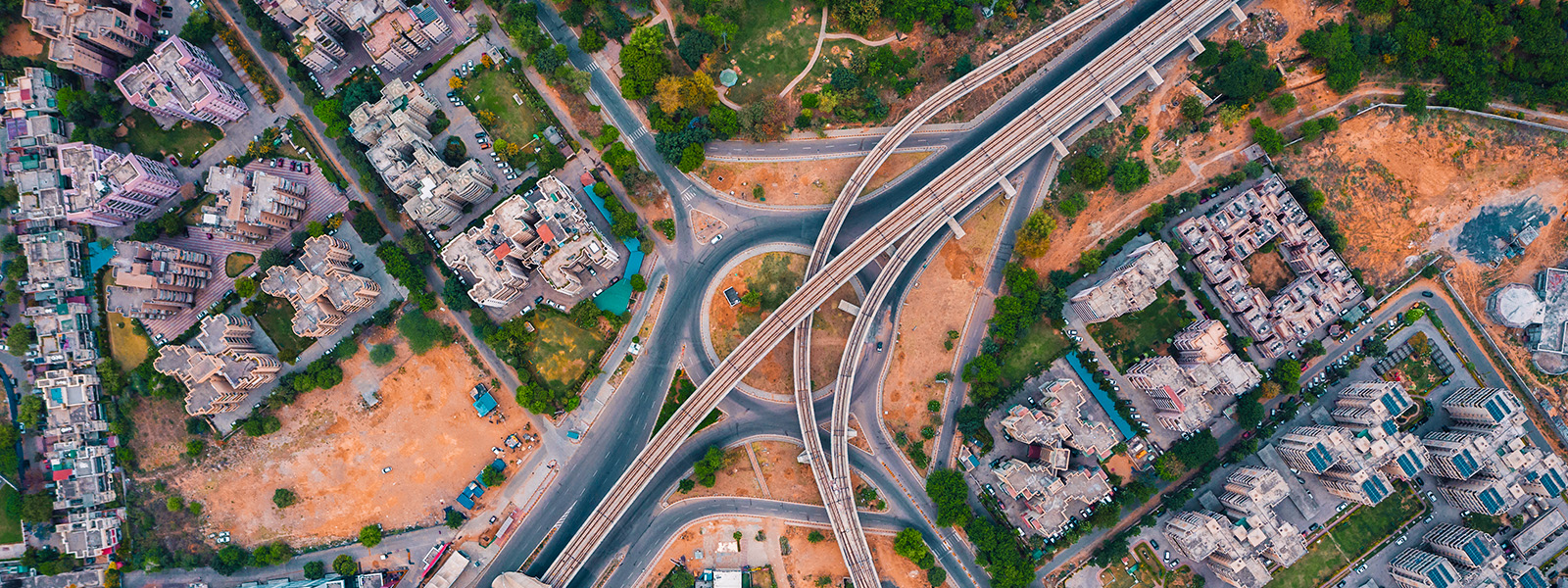Process of Owning Property by NRI in India
June 17, 2024 in Property Guide

In recent years, India has emerged as a global economic powerhouse, attracting investment and interest from people around the world, including Non-Resident Indians (NRIs). One of the most common aspirations for NRIs is to own property in their homeland. But how can an NRI own property in India? In this guide, we'll walk you through the step-by-step process on owning property in India as an NRI or if you wish to buy property for NRI.
Understanding the Basics of NRI property
Let us understand the basic terms on NRI Property:
- NRI (Non-Resident Indian): An NRI is an Indian citizen who resides outside India for employment, business, or any other purpose that indicates an indefinite stay abroad.
- PIO (Person of Indian Origin): A PIO is a person who holds foreign citizenship but can trace their origin back to India.
- OCI (Overseas Citizen of India): An OCI is a foreign national of Indian origin who is not an Indian citizen but has rights similar to NRIs regarding property ownership.
Process of Owning Property By NRI
Looking for a property in Ahmedabad for sale?
Step 1: Determine Eligibility
Before you begin the property ownership process, ensure that you meet the eligibility criteria. As an NRI or PIO, you are allowed to own residential or commercial property in India, with a few restrictions on agricultural land, plantation property, and farmhouse purchases.Step 2: Choose the Type of Property
Decide whether you want to purchase residential, commercial, or industrial property. This choice will impact the subsequent steps, as each type of property has different regulations and paperwork.
Step 3: Get a PAN Card
A Permanent Account Number (PAN) card is essential for any financial transaction in India, including property purchases. If you don't already have one, you can apply for it online through the official website of the Income Tax Department.
Step 4: Choose the Right Financing Option
Decide whether you want to buy the property through self-financing or home loan. Many Indian banks offer home loans to NRIs, making it easier to acquire property without straining your finances.
Step 5: Select a Reputable Real Estate Agent
Partnering with a reliable real estate agent who specialises in serving NRIs can be immensely beneficial. They can guide you through the local market, legal procedures, and paperwork, ensuring a smoother buying experience.
Step 6: Choose the Right Location and Property
Research and shortlist potential properties based on your preferences and budget. Consider factors like location, amenities, proximity to essential services, and potential for appreciation.
Step 7: Verify Property Ownership
Before finalising any deal, ensure that the property has a clear title and is free from any legal disputes. This can be done by conducting due diligence and hiring a legal expert to verify all documents.
Step 8: Get a No Objection Certificate (NOC)
If the property you're buying was previously owned by an NRI, you'll need an NOC from the Income Tax Department. This certificate confirms that the seller has fulfilled all tax obligations.
Step 9: Sale Agreement
Once all checks are in place, the buyer and seller need to sign a sale agreement, which outlines the terms and conditions of the sale, including the payment schedule and possession date.
Step 10: Register the Property
Registration of the property is a crucial legal step. Both the buyer and the seller need to be present at the sub-registrar's office to sign the necessary documents. It's advisable to hire a lawyer for this process to ensure all legal formalities are followed.
Step 11: Get the Occupancy Certificate
For newly constructed properties, it's essential to obtain the occupancy certificate from the local authorities. This certificate confirms that the property meets all building codes and is safe for habitation.
Step 12: Funding the Purchase
If you're financing the property through a home loan, you'll need to provide the necessary documents to the bank. These typically include your PAN card, passport, visa, employment details, and income proof. Many banks offer competitive interest rates and flexible repayment options for NRIs.
=> Read Also:- Stilt Parking Meaning, Rules of Stilt Parking & How it Works?
Things To Consider Before You Invest in Real Estate in India as NRI
Power of Attorney (PoA)
It's common for NRIs to appoint a trusted person in India as their Power of Attorney (PoA) holder. This individual will represent you in all property-related transactions and legal matters. The PoA can be general or specific, granting authority to handle specific tasks such as property purchase, registration, and maintenance.
Tax Implications
One needs to know the tax implications related to property ownership in India. Rental income from the property is subject to income tax, and you'll need to file tax returns accordingly. Additionally, if you decide to sell the property, you might be liable for capital gains tax. Consult a tax expert to ensure compliance with Indian tax laws.
Repatriation of Funds
NRIs are allowed to repatriate the funds from the sale of property in India, subject to certain conditions. If the property was acquired using funds from abroad, the repatriated amount should not exceed the initial investment. Ensure you follow the Reserve Bank of India (RBI) guidelines regarding repatriation.
Maintenance and Property Management
If you're not planning to reside in the property, consider how you'll manage and maintain it. Property management companies can assist with tasks like finding tenants, rent collection, and maintenance, ensuring that your investment remains lucrative.
Regulations
Property laws and regulations in India can change over time. As an NRI, it's important to stay updated with the latest legal developments that might impact property ownership, taxation, and repatriation.
Selling the Property
If you eventually decide to sell the property, be aware of the capital gains tax implications. The tax rate varies depending on the holding period and type of property. Proper documentation and compliance with legal formalities are crucial during the selling process.
Estate Planning
Include your Indian property in your estate planning, especially if you have family members or heirs in India. Clearly outline your wishes for the property in your will to avoid potential disputes and legal complications in the future.
Types of Properties NRIs can Purchase in India
1. Residential Homes:
NRIs can buy homes like apartments, villas, and houses for themselves or their families. These are great for personal use during visits or as a future living space.
2. Business Spaces:
They can invest in offices, shops, or commercial buildings. These can bring rental income and good returns due to their business-related demand.
3. Industrial Properties:
NRIs can own warehouses, factories, or industrial land. These offer rental income and can grow in value as industries expand.
4. Vacation Getaways:
Investing in holiday homes lets NRIs enjoy vacations in India and rent them out when not using them.
5. Secure Communities:
Gated communities provide safety and amenities like parks, CCTV surveillance, community centre, etc. NRIs can invest in these for a comfortable lifestyle.
6. Farmhouses and Land:
Owning farmhouses and plots for building is possible. These are often in peaceful rural areas.
7. Luxury Living:
For NRIs seeking luxury, high-end properties in prime locations offer top-class living.
8. Affordable Homes:
NRIs can support affordable housing projects, helping provide budget-friendly homes to more people.
9. Senior Living:
Investing in senior living communities caters to older folks' needs and future planning.
10. REITs:
Real Estate Investment Trusts helps invest in real estate as NRI without buying properties directly.
=> Read Also:- Common Land Measurement Units Used in India - Land Area Units
Documents required for an NRI to buy property in India
-
Passport
: Proof of your identity and NRI status. -
Visa and Work Permit
: Shows your overseas residency and permission to buy property. -
Overseas Address Proof
: Document from your foreign address. -
PAN Card
: Essential for financial transactions in India. -
Indian Address Proof
: A proof of your local address in India. -
Passport Photos
: Recent passport-sized pictures. -
Power of Attorney (PoA)
: If you can't be present, this authorises someone to act for you. -
Sale Agreement
: The terms between you and the seller. -
Title Deeds and Property Tax Receipts
: Proof of ownership and tax payments. -
Encumbrance Certificate
: Confirms the property is free of legal claims. -
NOC from Income Tax Department
: Needed if the seller is also an NRI. -
Receipts of Payments
: Proof of the property payment. -
Income Proof
: For property loans, documents showing your income. -
Bank Statements
: Shows the source of funds. -
Foreign Remittance Certificate
: If using foreign funds for payment. -
Tax Returns
: Previous years' tax returns, if applicable. -
PIO/OCI Card (if applicable)
: Copies if you hold these cards. -
Property Registration Forms
: Required for property registration. -
Passport Copy of Seller
: To verify the seller's identity and NRI status (if applicable). -
Society NOC (for Apartments)
: If buying an apartment, this certificate is needed.
Conclusion
Owning property in India as an NRI is a great way to connect with your homeland and create a potential income source or investment opportunity. But, remember, the process includes legal, financial, and administrative steps that need careful attention and following rules.
Be it villas or 4 BHK Flats in Ahmedabad, by following the comprehensive guide provided here, you can navigate the complexities with confidence. This will ensure a smooth and successful property ownership journey in your homeland. Remember, seeking advice from legal and financial professionals well-versed in NRI property ownership can provide invaluable assistance throughout the process.
Looking for dream spaces, not sure where to start?
Leave us a query and our representative will get back to you.
Disclaimer
The Adani Realty expressly disclaims all liability in respect to actions taken or not taken based on any or all the contents of this Blog. The content of this blog is collation of data from various sources and is provided only for information purpose only and Adani Realty does not canvass the particulars, information, brand or any other materials mentioned in the blogs nor does it obtain any monetary benefit from the same.The Adani Realty shall in no circumstance be held liable for any expense, loss or damage including, without limitation, direct, indirect or consequential loss or damage, or any other expense, loss or damage whatsoever arising from the use of data, information, interpretation, judgement or opinion arising out of or in connection with the use of this Blog. Reader is advised to read and apply his/ her intellect and discretion in this regards.

